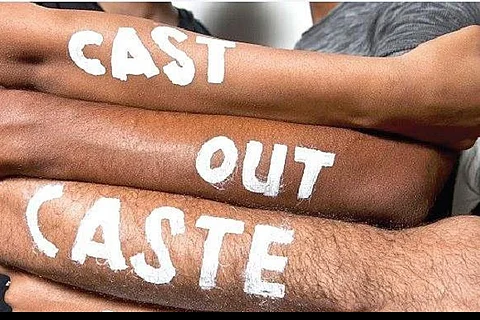HC judgment divorced from caste dynamics
In 2016, a young man and woman set out to buy some clothes. Hours later, the man was dead and the woman was fighting for her life after a brazen public attack in the middle of the afternoon in Udumalaipet. The man, Shankar, died at only 22, his body scarred by 33 different injuries. Nineteen-year-old Kausalya endured the brutal assault, somehow remaining conscious through it all.
There was no doubt it was a caste killing. Kausalya came from the socially dominant Thevar community while Shankar was from a SC community. A trial court the following year convicted Kausalya’s father B Chinnasamy of masterminding the murder, sentencing him and the assailants to death. On Monday, however, the Madras High Court acquitted Chinnasamy while confirming the conviction of the assailants and commuting their sentence.
The HC, in its 300-page order, considered the charge of conspiracy against Chinnasamy based on five points: a 2015 complaint given by Kausalya against her parents, call records linking Chinnasamy and the hirelings, meetings between him and the men, his role in arranging their accommodation at a lodge, and his withdrawal of money from an ATM ostensibly to pay them. On at least three of these grounds, the HC found the investigation lacking.
The prosecution was unable to show records for the lodge booking and failed to ensure test identification parades in two instances. These lapses are an indictment of the state’s efforts to ensure justice for Shankar.
However, two of the contentions hold water. First, call records clearly show that Chinnasamy was in regular contact with the assailants. Second, the HC sees the closing of complaints filed against Kausalya’s family as evidence that they had made peace with the marriage despite Kausalya’s brave testimony against her own parents.
In a case about a caste killing, the court’s judgment reads as divorced from the social dynamics of caste. Such a killing is an act of violence rooted in a patriarchal ownership of a woman’s body. It is a punishment of and warning against those who may think to test, let alone transgress, caste boundaries. It may be up to the Supreme Court to answer the question as to who killed Shankar. When the time comes, it is hoped the apex court sees the facts of the case set in the brutal context of caste.

